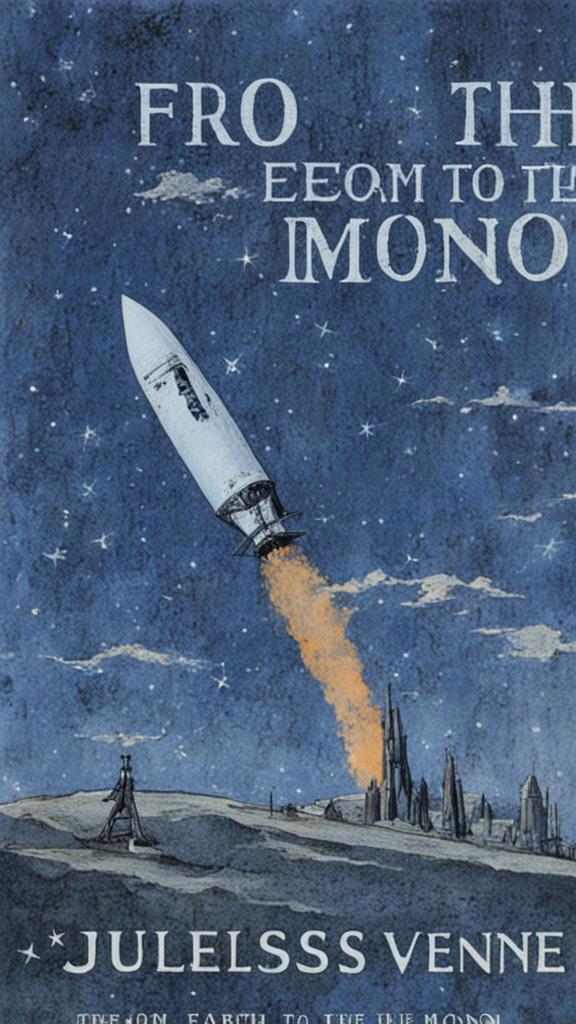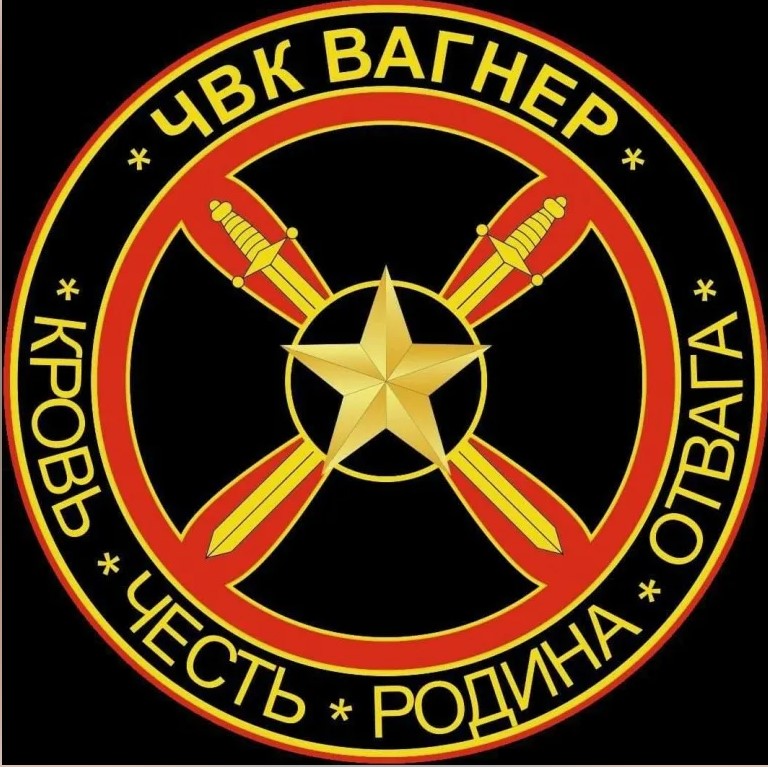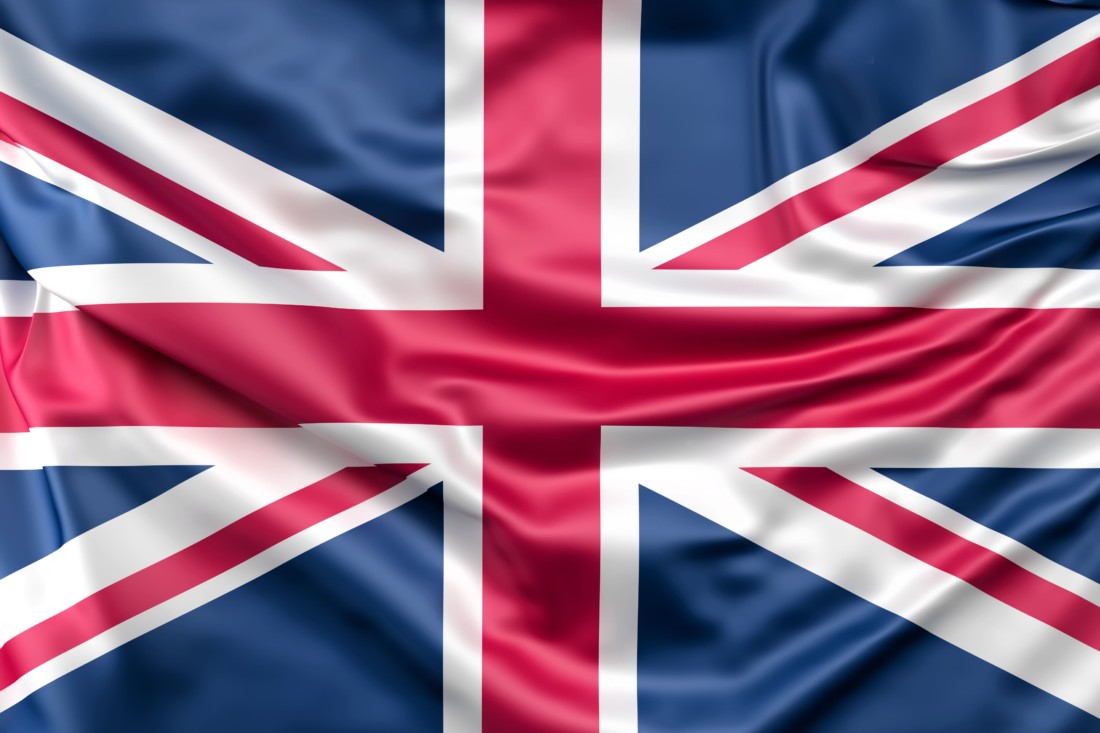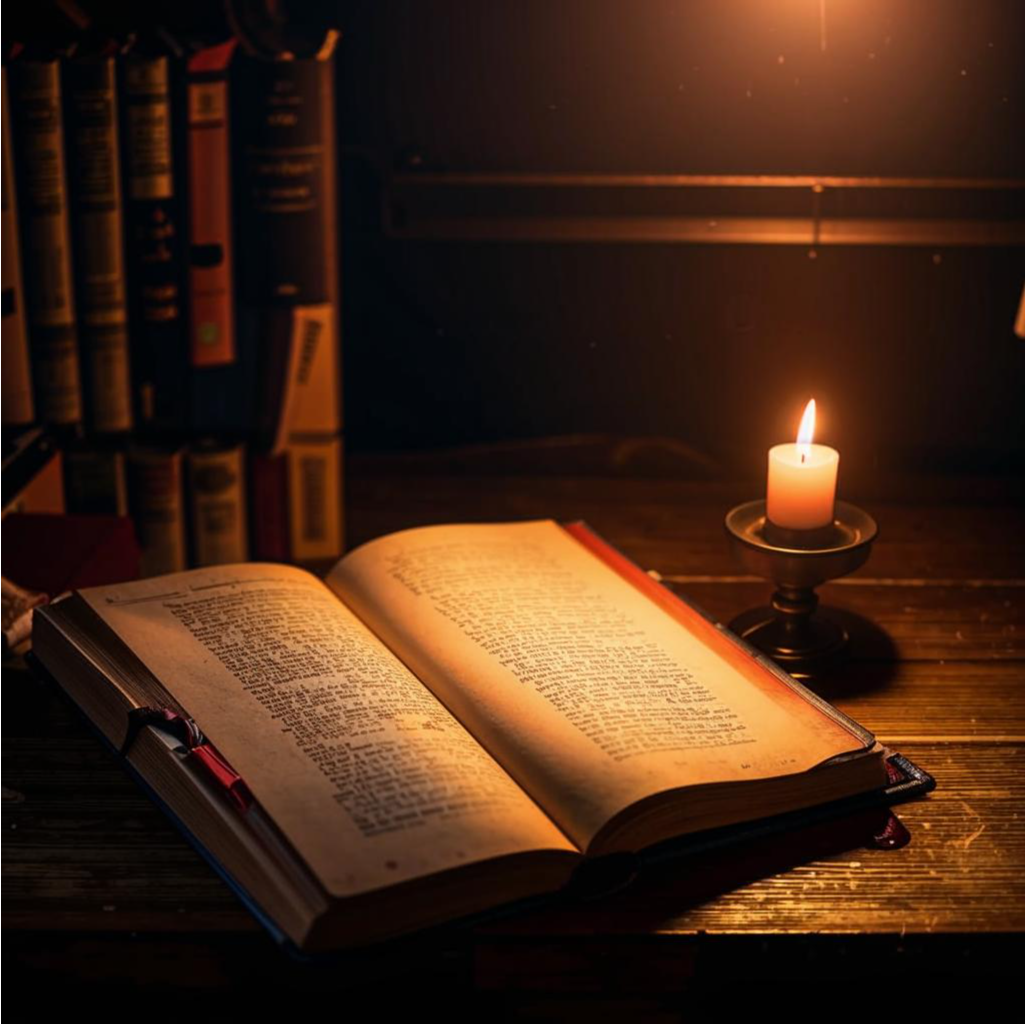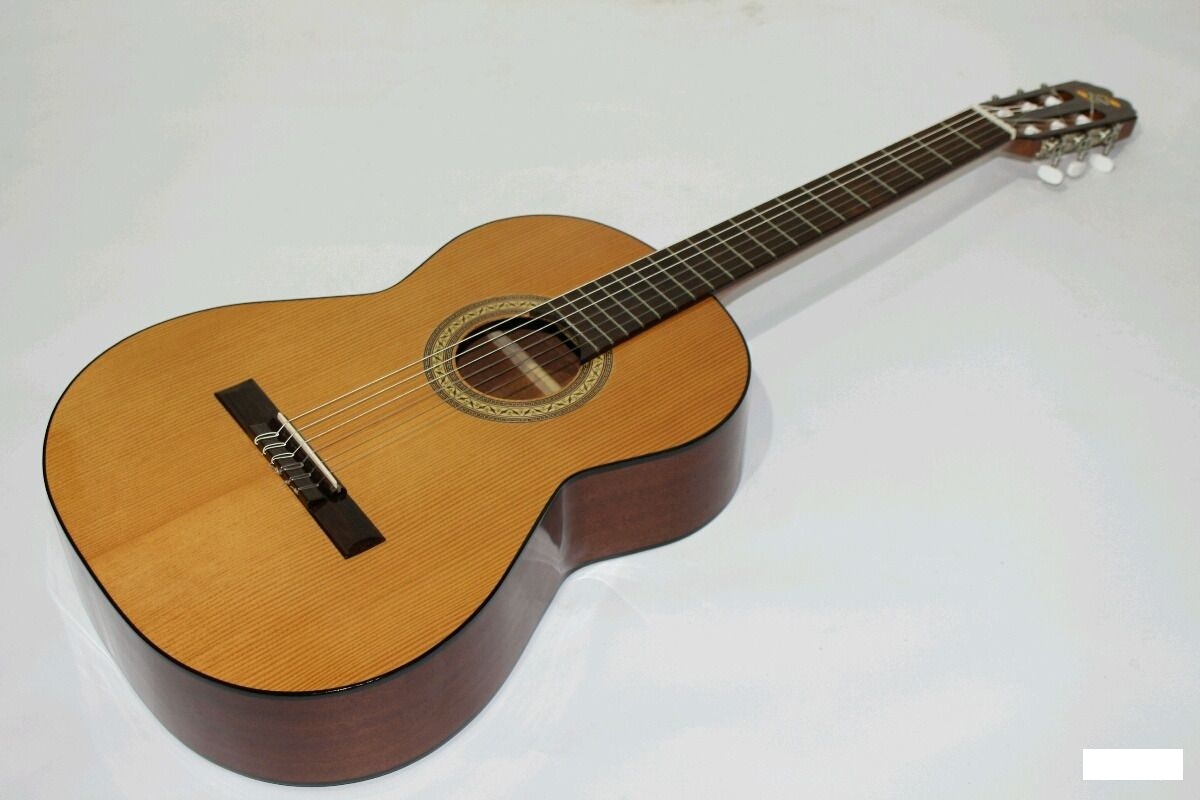Chapter one
The Gun Club of Baltimore
In the 1860s, at the time of the American Civil War, a new club opened in the town of Baltimore in the United States. The Americans love their clubs, and they usually begin like this: one man or woman has an idea, then he or she finds a second person with that idea, too, and then a third. Soon there are five of them. So they all meet, and a new club is born!
In the Civil War, people needed new long cannons and big guns. And people across the country all wanted to make bigger and better explosives. But of course, they needed to talk about their ideas first. And this was how the Gun Club of Baltimore began.
After one month, there were 1,833 members of the club in Baltimore and 30,575 members across the country. In the club, there were young students with the latest ideas, and very old men with years of work behind them.
Of course, some members lost parts of their bodies in their daily work. Some had only one leg and some had hooks for hands. But nobody wanted to stop - they all loved making new explosives.
***
In 1865, the Civil War finished. The guns stopped and nobody needed explosives. The Gun Club building in Baltimore was quiet, and the rooms were dark and cold.
Two of the most important members, J.T. Maston and Tom Hunter, sat in one of the offices at the club. 'People don't want our explosives now,' said Maston, a tall, thin man of about fifty. 'What are we going to do?'
'We need to close the gun club, I think,' said young Hunter slowly, and he looked down.
'But I love this club!' cried Maston, and he moved his hook excitedly from side to side. And I love thinking of new explosives!'
'Yes, everybody knows that,' said Hunter. 'And we all remember your last big cannon - and the day it broke noisily into thousands of small parts. A wonderful day!'
'Well... yes,' said Maston. 'I'm working on a new cannon now. It's going to be bigger and better than the last one!'
'Oh no!' said Hunter quietly, and he ran his hands through his short brown hair. 'Please be more careful this time.'
The next day, all the members had a letter from the President of the Gun Club. 'Our President doesn't usually write to us.' said Maston to Hunter. 'He wants to say something very important, I think.' Maston opened the letter.
I want all members to come to a meeting on 5th October at eight o'clock in the club building.
Your president,
Impey Barbicane
On 5th October, the members of the Gun Club arrived in their thousands. The once quiet building was now alive again. Those from Baltimore walked to the club, and those from across the country came on many different trains.
The meeting was in the biggest room at the club, but not everybody could come in. Many members looked in through the windows, some stood at the door, and some waited in the little offices at the side.
The members of the Gun Club all waited excitedly. 'What is this meeting about? Why are we all here?' they asked again and again. But nobody knew the answer. J.T. Maston couldn't stop moving from side to side in his chair, and Tom Hunter looked up at the long table at the front of the room.
At the long table sat their famous president, Impey Barbicane. At his side was the next most important member of the club, old Captain Elphinstone. Barbicane wore a tall black hat and a long winter coat. He had cold blue eyes and short dark hair. He looked out across the room without speaking. On the table in front of him, there was a large metal cannon ball with a long pen in it.
'What is our president thinking?' Maston asked Hunter.
'Who can say?' Hunter replied. 'We must wait and see.'
Just then, the room went quiet. It was eight o'clock and they could all hear the big Gun Club clock. It was time to start. President Barbicane stood up and began to speak.
'Gun Club members from near and far, thank you for coming to our wonderful club today. I need to talk to you about something important. For a long time, we did very interesting work - we made new cannons, new guns, and new explosives.'
'Yes, new explosives!' cried J.T. Maston excitedly.
'But now our country doesn't need our work any longer, and some people want to close our famous Gun Club,' said Barbicane.
'No! No!' cried everybody in the room angrily.
'The members of our club have many wonderful ideas about explosives,' said Barbicane. And we must remember this. With all these ideas, perhaps we can make something new and exciting.'
'Yes! Yes!' all the members cried at once, and they stood up.
'Now everybody here knows that wonderful white ball in our sky at night,' said Barbicane. 'Is that true?'
'Yes, I know. It's the Moon,' cried J.T. Maston. 'He's talking about the Moon!'
'That's right,' said Barbicane. 'And I have an exciting new idea for all our members here. Perhaps we can make the Moon a part of our famous country!'
'The Moon a part of our country?' the people began to ask. 'But how is that going to happen?'
'Well, stop talking all at once and listen carefully,' said Barbicane. 'Then I can tell you.'
CHAPTER TWO
President Barbicane has some letters
The room went quiet. There was only the noise of the big clock. All the members looked up at their president.
'We know many things about the Moon from our wonderful astronomers,' said Barbicane slowly.
'But the Moon is far away,' he said. 'And we have no true communication with it.'
'Yes, that's right!' cried old Captain Elphinstone. And he smiled like a young man.
'But I have a plan - a plan to begin communication with the Moon,' cried Barbicane. 'And that communication is going to be in our language. The language of explosives!'
'Hurrah!' everybody cried.
'My idea is to send a big projectile to the Moon,' said Barbicane. 'It can be our first communication with it!'
'Yes! Let's send a projectile!' cried J.T. Maston. 'A very big one!'
Everybody loved Barbicane's idea. In the room, the members all began to move their feet up and down and make noise.
J.T. Maston smiled and said, 'It's like a hundred cannons!'
Just then, four of the men at the front took Barbicane from his chair, and they began to carry him across the room. 'Hurrah for President Barbicane!' they cried.
Tom Hunter quickly opened one of the doors. The four men carried their president out onto the street. By now, everybody in the town knew about Barbicane's idea. 'Hurrah!' cried the men and women of Baltimore. 'Hurrah for the projectile to the Moon!'
Barbicane's plans went at once by telegram to the thousands of Gun Club members in different towns. And the next day, his picture was on the front of 1,500 newspapers around the United States. Astronomers in different countries heard about the plan, too, and they began to talk about it excitedly.
Barbicane had many questions about his plan. So he sent a letter to the best astronomer in the United States.
***
After two days, there was a letter back.
Dear President Barbicane,
Here are the answers to your questions:
1 Can we send a projectile to the Moon?
Yes. But you need to send the projectile very fast from the Earth - at 12,000 yards per second.
2 How far is the Moon from the Earth?
The Moon sometimes moves nearer to the Earth and sometimes further away. At its nearest, it is 218,657 miles from us.
3 What is the best date to send the projectile to the Moon?
You need to find a date when the Moon is nearest to the Earth, and over our heads in the sky. This doesn't happen often, but it is going to happen on December 1 next year Send the projectile on that evening at forty-seven minutes and forty seconds past ten o'clock.
4 When is our projectile going to arrive at the Moon?
From my calculations, it is going to arrive four days, one hour, thirteen minutes, and twenty seconds after you send it.
5 Where do we need to send the projectile from?
You must send the projectile from Florida.
J.M. Belfast
The next day, Barbicane had a meeting at his house. The most important members of the Gun Club came. J.T. Maston was ready with his pen, young Tom Hunter was there, and old Captain Elphinstone, too.
The four men sat around a big table with hot drinks and sandwiches on it. 'The meeting is open!' cried J.T. Maston and he moved his hook in the air.
'Thank you, Maston,' said Barbicane. 'Now, we need to talk about three things - the projectile, the cannon to send the projectile, and, of course, the explosives for the cannon.'
After hours of talking, making long calculations, and eating many sandwiches, the four men were ready. 'Now, write down these things, Maston,' said Barbicane. 'These are our plans for next year - we're going to make a projectile nine feet across and a cannon nine hundred feet long. And we're going to put four hundred thousand pounds of explosives in it.'
When J.T. Maston finished writing, he stood up excitedly.
'It's going to be the biggest cannon on Earth!' he cried. And with that, he ran at Barbicane like a cannon ball and put his arms around him.
The plan was soon in every newspaper across the country. And every American was excited. But one man was angry. Who was he? The famous Captain Nicholl.
In the Civil War, Barbicane made projectiles and Nicholl made shields. These shields could stop any cannon ball or projectile. When Barbicane made a bigger, better projectile, Nicholl, of course, made a bigger, better shield. And soon there was a little war between these two men.
When he heard about Barbicane's new plan, Nicholl this in front of wrote to all the newspapers. 'The calculations are wrong!' he said. 'The projectile is going to fall back to the Earth and kill people!'
Nobody listened to Nicholl, but he didn't stop. Day after day, he sent angry letters to the newspapers. And then one day, he wrote to President Barbicane.
'I know that name,' thought Barbicane when he opened the letter. 'Now what does that man want?
CHAPTER THREE
A visitor from across the sea
Barbicane read the letter.
Dear Mr Barbicane,
From my calculations, three parts of your plan can't work. Those three things are at the bottom of this letter.
Now, I'm a rich man. And I have a plan, too. When you can do these things, I'm going to give you money. But when you can't do them, you're going to give me money.
1 Make a cannon nine hundred feet long. 2,000 dollars
2 Put four hundred thousand pounds of explosives in the cannon without an accident. 3,000 dollars
3 Send the projectile into space. 5,000 dollars
Are you happy with this idea?
Captain Nicholl
Barbicane wrote back. His letter said one thing:
Yes.
The next day, at the Gun Club, Barbicane stood in front of a big picture of the United States. 'Our projectile needs to leave from Florida,' he said. 'From my calculations, Tampa in Florida is the best place for us. We must find a hill near there for our cannon.'
'But what about the money for it?' asked Captain Elphinstone.
'Tomorrow, I'm going to write to the richest people in every country,' said Barbicane, 'and ask for money. Our plan is to send a communication from everybody on Earth to the Moon! Many people are going to want to help us.'
Three days later, Barbicane had four million dollars. It came from many different countries. 'Now we can make our cannon!' said Barbicane. And he took a ship to Florida with Captain Elphinstone, Tom Hunter, and J.T. Maston.
After they arrived in Tampa, Barbicane and his men looked for the best place. They went through trees, over rivers and across open country. At last, they stood on a hill. 'This is a good place for our cannon!' cried Barbicane. 'First we need to make a place for trains to stop, then make a big hole far down into the hill.'
***
Thousands of workers came from across the country. They made a big hole and then they began to make 1,200 furnaces around it. Barbicane watched over the work day and night, with J.T. Maston at his side.
After many months, Barbicane said, 'Today, we're going to make the metal for the cannon!' The workers made a fire in every furnace. At 12 o'clock, Barbicane cried, 'Go!'
Long rivers of hot red metal moved from the furnaces to the dark hole. By night-time, they were finished.
The metal stayed hot for weeks. When it was cold, the workers made a long hole down through it. 'I have an idea!' said J.T. Maston. The next day, he took the important Gun Club members down into the dark hole. At the bottom, there were chairs, and a table with wonderful things to eat.
'We have our cannon!' cried Barbicane when they sat down. And some metal workers are making our projectile. And we have more than two months before our big day! Nicholl needs to give me two thousand dollars!' The next day, a letter with two thousand dollars came for Barbicane. 'This isn't going to be the last letter from Nicholl!' he laughed.
A week later, Barbicane had a telegram. 'Is this from Nicholl, too?' He thought. But it wasn't.
PARIS, FRANCE TO BARBICANE, TAMPA,
FLORIDA
CHANGE THE PROJECTILE. MAKE A PLACE FOR A MAN INSIDE IT. I PLAN TO GO IN IT. I AM ARRIVING SOON ON THE SHIP ATLANTA.
MICHEL ARDAN
'Who is this man Ardan?' cried Barbicane. 'Change the projectile? We're not going to change our plans now!'
Later that day, Barbicane learned more about Ardan. 'He's a famous Frenchman with some interesting ideas,' he told Maston. 'And he's arriving here by ship in two weeks.'
Everybody across the country heard about Ardan. 'He wants to go inside the projectile!' they said. And on 20th October, thousands of people watched The Atlanta arrive in Tampa. Ardan stood at the front of the ship. He was a tall man, with long yellow hair and a slow, easy smile.
Barbicane walked onto The Atlanta to meet him.
'Would you like to hear my plans?' asked Ardan.
'Yes,' said Barbicane coldly. The men talked for five hours in Ardan's room. When Barbicane came out, he was all smiles. 'Our friend Ardan wants to meet everybody,' he said. That afternoon, there was a meeting of 100,000 people near Tampa. Ardan and Barbicane were at the front.
'Good people,' cried Ardan, 'the Moon is nearer than we think! One day, somebody is going to visit it. And I'd like to be that person!' He spoke about his plans, and everybody listened. In the end, they cried 'Hurrah for Ardan!'
But one man at the front looked up angrily at Ardan. 'Your plans are never going to work,' he cried. 'When the projectile goes up, you're going to die from the sudden shock. And it's all thanks to Barbicane!'
'Who are you?' cried Barbicane.
'Do you need to ask?' he laughed. 'I'm Captain Nicholl!'
Later, Barbicane saw Nicholl again. 'You can't say things like that!' he cried. 'There's a hill near here. Let's meet there tomorrow at five o'clock in the morning - for a duel!'
CHAPTER FOUR
Ardan has a plan
Early the next morning, Ardan was in bed in his hotel. There was a sudden noise at the door.
'Open at once!' somebody cried. When Ardan opened the door, J.T. Maston ran in to the room like a cannon ball. 'Nicholl and Barbicane are going to have a duel!'
'A duel?' said Ardan.
'Yes! I can tell you more about it later,' said J.T. Maston. 'Come on! Perhaps you can stop them!'
Ardan was soon ready, and they ran to the hill. 'President Barbicane! Captain Nicholl!' they called. But there was no answer. On and on they walked, and J.T. Maston told Ardan about the plans for the duel.
Suddenly, they saw somebody with a gun over his arm. 'It's Nicholl!' said J.T. Maston quietly. 'He's looking down at something! Is it the dead body of my friend Barbicane?'
They watched Nicholl from behind a tree. In front of him, there was a little bird with a metal hook around its leg. The bird couldn't move or get away. So Nicholl carefully took off the hook and the bird was free again.
'You're a good man, Nicholl!' cried Ardan.
'What are you doing here?' asked Nicholl.
'I'm here to stop the duel,' said Ardan.
'And I'm here because I'm Barbicane's best friend,' cried J.T. Maston. 'Kill me, not Barbicane!'
'Nobody is going to die!' said Ardan. 'I have a plan. But we must find Barbicane first.'
In the end, they found him with a book and a pen in his hands. 'Look! He's making calculations!' said Maston.
Just then, Barbicane cried, 'I have the answer! I can stop the shock when the projectile goes up. We can put a big spring at the bottom of it.' Then he looked at the three men. 'But why are you here? Is it about that duel?'
'Forget your duel. I have a better plan,' Ardan said. 'We all have our questions and ideas about the projectile. Is it going to go up to the Moon? Or is it going to fall back to Earth? Come with me inside it and find the answer.'
Barbicane and Nicholl said 'Yes!' at once.
'What about me?' asked J.T. Maston.
'Sorry, Maston. We need somebody here on Earth,' said Barbicane. 'We need you to watch the projectile from our big new telescope in the Rocky Mountains.'
'Thank you!' said J.T. Maston, and everybody walked back happily. Barbicane sent a letter to the projectile makers about the changes to the plans. 'Put a spring at the bottom and make a room for three people inside,' he wrote. Weeks later, on 10th November, the projectile arrived. J.T. Maston ran and looked in through a door on the side of it. 'There's a room with four windows!' he cried. 'One in the roof, two at the side, and one at the bottom! There are two very big bottles, too.'
'Yes,' said Barbicane. 'One bottle is for water, one for gas.'
'The gas can make the projectile warmer when we need it,' said Ardan. 'And there's a machine - it can make air.'
'There are rockets at the bottom. They can help to bring us home,' said Barbicane.
'The projectile has everything!' cried J.T. Maston.
'But next comes the most dangerous part,' smiled Nicholl. 'You need to put the explosives in the cannon!'
On 22nd November, four hundred thousand pounds of explosives came to Tampa by train. 'Be careful with these!' Barbicane told everybody. 'We can't have any fires or smokers near them.' But soon, three hundred thousand excited people came to the hill. Everybody wanted to see the explosives. J.T. Maston looked for smokers, and ran after them. 'Stop smoking at once!' he cried angrily.
A tall machine carefully put the explosives down into the cannon, and by the evening it was all ready.
'Here's your three thousand dollars,' said Captain Nicholl to Barbicane, and he gave him the money. Then he quickly walked away.
That evening, the three men began to carry their things inside the projectile. Barbicane put in a book about the Moon, and Nicholl brought a telescope. But Ardan wanted to take wonderful pictures and beautiful chairs. 'I must always have nice things around me,' said the Frenchman.
'Not too much, please!' said Barbicane. 'Remember, we need to take food and water too!'
The 1st of December arrived. Five million people came to Florida by foot, train, and ship. They stood noisily around the cannon, but when evening came they were quiet. Then the Moon went up into the black sky. 'Hurrah!' cried the men and women. And, like good Americans, they sang 'Yankee Doodle Dandy'.
The three men were near the door of the projectile. Barbicane stood importantly, Nicholl waited quietly, but Ardan smiled and talked to the people.
They went into the projectile, and J.T. Maston closed the door behind them. 'Good luck!' he cried. Then a big machine put the projectile slowly down into the mouth of the cannon. 'It's now forty-seven minutes past ten!' cried Maston. 'Only forty more seconds to go!'
The people all began to say 'one, two, three...' Soon it was, 'thirty-eight, thirty-nine, forty!'
There was the noise of explosives and a sudden white light. The hill began to move under everybody's feet. The projectile moved up into the night sky with a big ball of fire behind it. People and buildings fell over from the shock.
CHAPTER FIVE
Around the Moon
The three men sat in the dark projectile. There were metal shields over the inside of the windows and not much light could get in. From all around, they could hear the people -'thirty-eight, thirty-nine, forty!'
'This is it, my friends!' cried Ardan, and he took Barbicane and Nicholl by the hand. The men all closed their eyes.
There was a big noise and a sudden shock. Some time later, Ardan opened his eyes. He was at the bottom of the projectile with two bodies next to him. 'Barbicane! Nicholl!' he said. But there was no answer.
He stood up. Barbicane opened his eyes, then Nicholl.
Ardan helped them up. Are we moving?' Ardan asked. 'Or are we on the hill in Florida?'
'I don't know,' said Nicholl. 'I can't feel anything.'
'Let's look out of the window,' said Barbicane. He took the metal shield off one of the windows. Suddenly the shield fell from his hand. 'It's going to break the window!' cried Nicholl. But it didn't hit the window - it stayed in the air. Barbicane, Ardan, and Nicholl, began to move up into the air, too.
'We're in space!' Barbicane laughed. 'We can't feel the gravity of the Earth or the Moon here!'
'Hurrah!' cried Ardan and Nicholl.
Nicholl then took something out of his coat. 'Barbicane,' he said. 'Here's your money. You were right.'
'We can be true friends now, I think,' said Barbicane.
'Good men!' cried Ardan.
The men looked carefully around the projectile. 'Everything is all right,' said Barbicane.
'Yes, the bottles of water and gas are ready,' said Nicholl. 'Our air machine is working well, too. It can make us air for a month.'
'That's wonderful!' said Ardan.
But just then, Barbicane saw something through the window. 'Look!' he cried. A big white ball of fire came quickly at them.
'What's that?' asked Ardan.
'A meteor!' said Barbicane. The meteor came nearer. It looked bigger and bigger. 'It's going to hit us!' cried Ardan. But it went quickly past them.
'There are millions of meteors in space,' said Barbicane, and he talked for a long time about them. 'That one is a satellite of the Earth.'
'We don't want to meet any more of those!' said Ardan.
Barbicane took the shield down from the window in the roof, and wonderful white light came into the room. 'The Moon!' they all cried.
Then Ardan took the shield from the bottom window. They could see the blue seas of the Earth.
'Maston is watching us from the Rocky Mountains with that flies through his telescope, I think!' said Ardan.
Last of all, Nicholl took the shield off the second window something that at the side. 'Ah! Some warm light from the sun!' he cried.
The three men soon began to feel tired, so they went to sleep. The projectile moved quietly on through space.
After six hours, Barbicane opened his eyes and looked at his watch. 'It's eight o'clock in the morning in Baltimore,' he said.
'Time for breakfast, then!' said Ardan. He had a place far up in the projectile with all his boxes in it. And he brought down things to eat - meat, bread, and coffee. With a little gas fire, he made a nice breakfast for everybody.
After breakfast, Captain Nicholl took out his telescope. First, he looked up at the Moon, then he looked down at the Earth, and then he wrote everything in a book. But Ardan walked around. He talked, he sang, he made dinner, and he went up to his place near the roof of the projectile. Sometimes noises came from there.
'What have you got in those boxes?' asked Nicholl. But Ardan only smiled. Barbicane sat and worked. He took out his watch, and made long calculations. By the evening, all three men were tired and they went to sleep again.
'Tomorrow we arrive at the Moon,' said Barbicane the next morning. 'But from my calculations, our direction is wrong. We're going to the far north of the Moon.'
'Perhaps that meteor changed our direction,' said Nicholl. 'A big meteor has gravity, like the Earth.'
'Ah, yes. That's true,' said Barbicane.
On their fourth day, they got up early. 'Today, we're going to walk on the Moon,' said Ardan excitedly. And meet the people there - the Selenites.'
'Ha! Ha!' laughed Nicholl. 'There are no Selenites!'
'Of course there are!' answered Ardan angrily.
'What's the matter with you two today?' cried Barbicane.
Just then, there was a noise, and four big fat birds came down from a box up in the projectile.
'What is happening?' asked Barbicane. But then he fell over with his eyes closed. Ardan and Nicholl fell over, too.
After five minutes, Nicholl sat up. 'I don't understand any of this,' he thought. 'But I need to make some tea.' So he put on the gas fire. But the fire was blue, not yellow. 'I know!' he said. 'It's our air machine! It's putting more oxygen into the air than usual!' He went to the machine and looked at it. 'There's a lot of oxygen coming out,' he said, and he changed something on the machine.
'I'm sorry,' said Ardan. 'I hit the air machine earlier. Perhaps I moved something on it.'
Soon, Barbicane, Ardan, and Nicholl all had some tea.
'Now,' said Barbicane, 'what are those birds doing here?'
'My plan was to bring them out on the Moon,' said Ardan. 'And then see your face!'
'Oh, you schoolboy!' said Barbicane.
Later, Nicholl looked through his telescope. 'We're near the Moon!' he cried.
'Nothing can stop us now!' cried Ardan.
The projectile went nearer to the Moon. With the light of the sun, the men could see everything. 'Look, the Selenites have roads!' said Ardan.
'Those aren't roads,' said Barbicane. 'They are long holes in between the mountains.' And he told Ardan all about the mountains on the Moon.
Ardan looked but he couldn't see any houses or villages. 'Nobody is at home!' he said.
That afternoon, everything suddenly went black, and the men couldn't see a thing. 'We're moving over the north part of the Moon,' said Barbicane, 'and down the dark side. But it's not good, I'm afraid.'
'Why?' asked Ardan.
'That meteor changed our direction a lot,' he said. 'More than I thought. We went past the north part of the Moon. Now we're a satellite of the Moon - we can't go down to it, or back to Earth.'
'But we can't stay like this!' cried Nicholl. 'We only have air for a month!' The projectile began to get cold. The men sat in their big coats around the little gas fire.
'What are we going to do?' asked Nicholl.
Just then, Ardan stood up. 'I have an idea,' he said. 'We have rockets on the bottom of the projectile. They can change our direction, and we can go down to the Moon.'
'Yes!' cried Barbicane. 'But we need to wait. We aren't in the right place. But in a week, we can move the projectile.'
The men moved on around the dark side of the Moon. One morning, Ardan sat down with a box in his hand.
'Time for dominoes!' he said. So they played for hours.
Then, after three days, they came into the sun again. 'Hurrah!' cried the men, and they took off their coats.
On they went for four more days. At last, they came to the right place. They opened part of the bottom of the projectile, and Ardan worked the rockets. There was a sudden shock through the projectile.
'We are falling fast!' cried Barbicane.
'To the Moon?' asked Ardan.
'No, to the Earth!' said Nicholl. 'The rockets are moving us in the wrong direction!'
'What is going to happen to us now?' cried Barbicane.
Chapter six
The return to Earth
Far back down on Earth, a ship, The Susquehanna, was in the Pacific Ocean to the west of the United States. The captain of the ship, Blomsberry, had important work. There was a plan to send telegrams through cables under the water, so they needed to learn more about the bottom of the sea. Blomsberry stood at the front of The Susquehanna with Bronsfield, one of the sailors. It was the evening of 11th December, and the two men looked up at the Moon. 'Where are those three spacemen?' said Captain Blomsberry. 'They left eleven days ago.' Like every American, Blomsberry was very interested in the projectile. His brother was a member of the Baltimore Gun Club, too.
'Who knows?' said Bronsfield. 'But you go to bed now, Captain. I can watch over the ship tonight.' At one o'clock in the morning, Bronsfield was at the front of the ship. 'It's a quiet night,' he said to the young sailor next to him. But just then, there was a noise high in the sky. They looked up and saw a red ball of fire. It came nearer and nearer.
'Aagh! What's that?' cried the sailor.
'It's a meteor, I think,' said Bronsfield. 'And it's coming towards our ship!'
The ball of fire fell into the water with a big 'Splash!'
Captain Blomsberry ran out. 'What was that?' he cried.
'It looked like a meteor,' said Bronsfield. 'But when it came nearer, we could see it better. It was the space projectile!'
Soon, all the sailors on The Susquehanna knew about the projectile. All three men are dead,' said one old sailor. 'Nothing can live through that!'
'Perhaps they're alive,' said a different sailor. 'They made that projectile very carefully.'
'Dead or alive, we must get them out,' said Captain Blomsberry. 'We need to go to San Francisco,' he said to Bronsfield. 'We can send a telegram for help there, and get a diving bell, too. Then somebody can go down in the water and look for the projectile.'
'But we must put a buoy here,' said Bronsfield. 'Then we can find the place again.'
On 14th December, The Susquehanna arrived in San Francisco. Captain Blomsberry sent telegrams to J.T. Maston, and to the Baltimore Gun Club.
AT 1.17 A.M. 12TH DECEMBER, PROJECTILE FELL INTO PACIFIC OCEAN. SEND HELP TO SAN FRANCISCO AT ONCE. CAPTAIN BLOMSBERRY
Captain Elphinstone opened the telegram at the Gun Club. 'The projectile is back on Earth!' he said to Tom Hunter excitedly. 'Can it be true?'
'Yes! Let's go to San Francisco,' said Hunter. 'Barbicane, Ardan, and Nicholl need us!'
J.T. Maston couldn't understand the telegram at first. 'I saw the projectile in space with my telescope and it was a sea satellite of the Moon,' he said. 'It couldn't get to the Moon or come back to Earth, I thought!' But then he stopped. 'Barbicane always has the answer to everything!' he cried. 'They are alive! I know it! I must go and help them!'
J.T. Maston met Captain Elphinstone and Tom Hunter in San Francisco, and they all went on The Susquehanna. Captain Blomsberry had the ship ready with a diving bell on it. 'We must be quick!' cried Maston when they left on 21st December. 'They only have seven more days of air!'
After two days on the ocean, they found the buoy. 'We can't lose a second!' said J.T. Maston. He got into the diving bell and went down under the water with Tom Hunter. They had a big light, but they couldn't see the projectile. Maston went down again the next day, and the next. After five days, on 28th December, Captain Blomsberry said. 'We aren't going to find them. We must go back to San Francisco.'
Just then, J.T. Maston had an idea. 'Of course!' he cried. 'The projectile has air in it. So it isn't going to stay at the bottom of the ocean!' They began to look across the sea, and there, sitting on the water, was the projectile!
The ship had a big hook on the side, so J.T. Maston went down to the projectile on it. At first, he couldn't see inside and everything was quiet. But then, he heard somebody say, 'Let's play one more time!'
'That's Ardan!' thought Maston. He moved nearer and saw Barbicane, Ardan, and Nicholl at a table with dominoes in front of them.
They all went back to San Francisco. J.T. Maston was the happiest man on Earth. 'We must go to the Gun Club in Baltimore at once and see our friends!' he cried to the men. On the road there, he listened to story after story from Barbicane, Ardan, and Nicholl.
When they arrived at the Gun Club, there were thousands of people. 'Hurrah for the first visitors to space!' they cried.
The next day, the three men all got on a train. They went from town to town and talked to many different people about the Moon. One young boy asked, 'Are you going to visit the Moon again - and walk on it this time?'
'Now, that is an interesting question!' smiled Ardan.
'And you can never say never,' said Captain Nicholl.
'That's very true,' said President Barbicane.
- THE END -
Hope you have enjoyed the reading! Come back to https://english-e-reader.net/ to find more fascinating and exciting stories!
P.S.Картинку выше и ниже нарисовала нейросеть; да, коряво, но мы - юристы Злой собаки - даже и так не умеем :(
